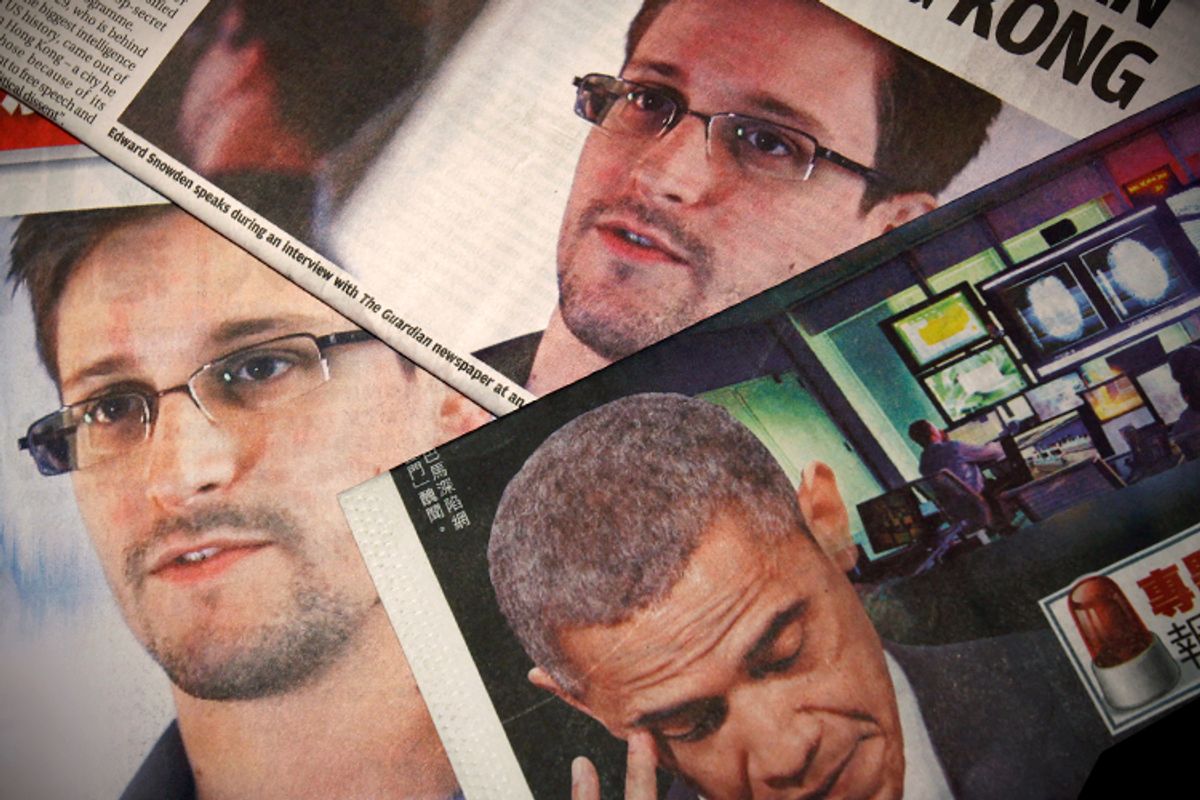I just got off a conference call with the leaders of StopWatching.Us, a brand-new coalition of 86 privacy, civil liberties and tech advocacy groups that is demanding "a full accounting of the extent to which our online data, communications and interactions are being monitored." Roughly speaking, it's a similar coalition to the one that successfully mobilized in early 2012 against the congressional anti-piracy bills SOPA and PIPA. When privacy and surveillance are the issues, it's no surprise to see the Electronic Frontier Foundation and Mozilla leading the charge.
I asked one question: Do Americans really care? Specifically, I cited the recent Pew polling data suggesting a majority of Americans are willing to accept surveillance tradeoffs in exchange for protection against terrorism.
The response was sharp. Joshua Levy of the Free Press Action Fund noted that a major purpose of the StopWatching.Us coalition was to get clarity and educate Americans on precisely what the government is up to. If there is a current lack of widespread outrage, he said, "that points to the utter importance of what we are doing."
"When Americans understand how we are giving up our basic rights," he said, "they do become outraged."
Gabriella Coleman, a professor at McGill University who has written extensively on hacker culture and Anonymous and who was listening in on the call, pointed out that the so-called majorities were smaller than advertised. There was plenty of room for movement in the numbers, she suggested, especially if campaigns like StopWatching.Us have an impact.
Coleman's interjection prompted me to take a closer look at the Pew data, which have been widely cited as indicating that Americans are "comfortable with trading privacy for security."
Fifty-six percent of Americans said that NSA secret tracking of phone calls was acceptable. Forty-one percent said it was unacceptable.
But only 45 percent said the government should be able to monitor everyone's email and other online activities. Fifty-two percent said the government should not be able to do so.
That's a country that's essentially split down the middle, and this story is barely a week old. In the case of SOPA and PIPA, we learned that there was a constituency of voters passionate on online issues and powerful enough to stop legislation in its tracks. It will be very interesting to see whether the same kind of grass-roots power gets mobilized by the threat of surveillance overreach.



Shares